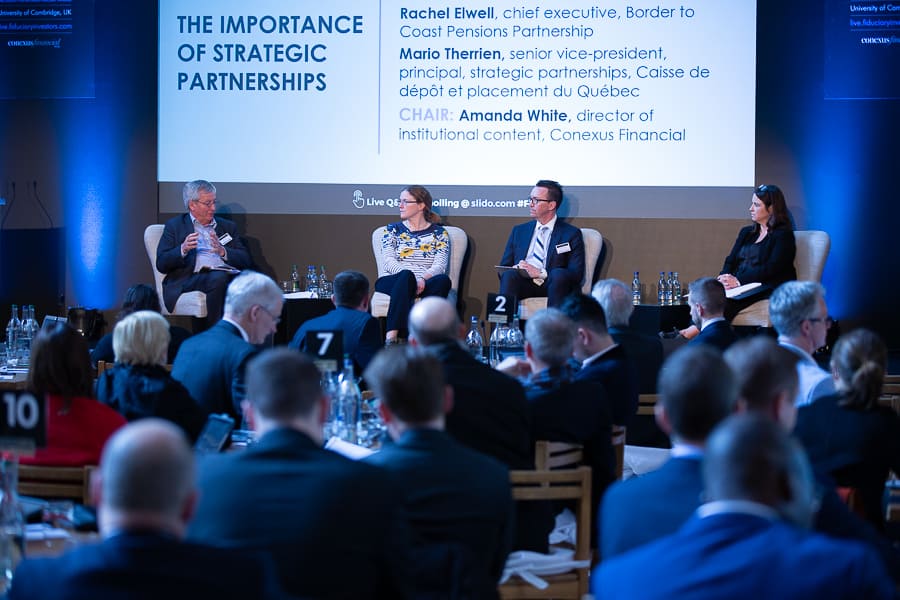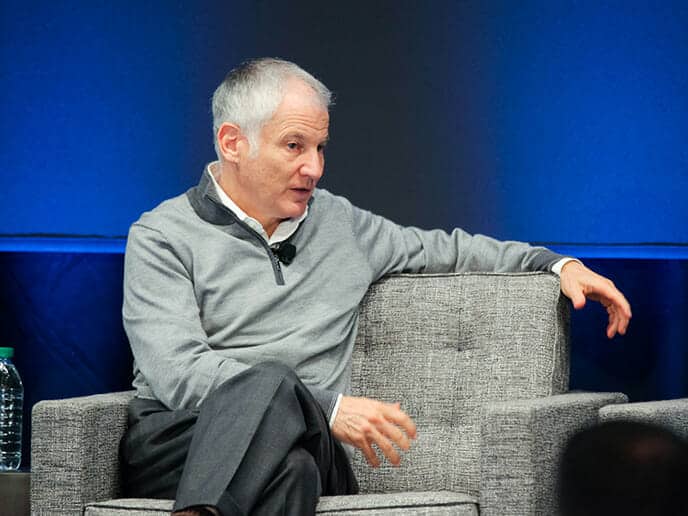An overwhelming number of delegates at the Fiduciary Investors Symposium said the funds management industry was not doing well in innovation
Martin Gilbert, who started Aberdeen Standard Investments in 1983 and is now chair, said industry participants needed to innovate and disrupt themselves.
Richard Williams, chief investment officer of Railpen said the fund was trying to change its culture to be more innovative.
“We think about innovation in two ways: tactical small changes; and larger strategic changes. We want the culture to change to an environment where it’s ok to be making more of those smaller changes,” he said.
Tactical asset allocation has added 1.2 per cent, or $4 billion, to the New Zealand Super Fund since the program’s inception, David Iverson, head of asset allocation at the fund told delegates.
NZ Super has the luxury of being able to look out over a 30 year time horizon. In a panel conversation on asset allocation, he joined Wylie Tollette, executive vice-president, client portfolio solutions at Franklin Templeton Investments who said that dynamic asset allocation can add value but is risky.
Michelle Tuveson, executive director of the centre at the Judge Business School discussed the need to broaden the view and assessment of risk.
The Cambridge centre for risk studies has developed a metric for enterprise risk called five year enterprise value at risk, which attempts to measure all the difference scenario impacts on the value of a company.
Three risk professionals – Samir Ben-Tekaya, head of risk at BCI, Mads Gosvig, vice president, portfolio construction at ATP and Arjen Pasma, chief risk officer at PGGM – gave case studies on their approach to investment and organisational risk. The emphasised the importance of risk management in pension investment organisations and the balance required in taking enough risk in a diversified way.
Delegates agreed that climate change is a risk and opportunity for portfolios. In a conversation led by Nina Seega, research director, sustainable finance at the Cambridge Institute for Sustainability Leadership, CIO of the French sovereign wealth fund, Salwa Boussoukaya-Nasr and Niklas Ekvall, chief executive of AP4, showed how their funds integrate climate change into their investment decisions.
A panel of investors – Rachel Elwell, chief executive of Border to Coast Pensions Partnership, Mike Clark non-executive director of Brunel Partnership and Mario Therrien, senior vice-president, principal, strategic partnerships, Caisse de dépôt et placement du Québec – discussed how asset owners can best partner with their investment managers to capture investment expertise but also all their organisational experiences; and what managers should be asking for in return.
Investment opportunities won’t necessarily be where they have been in the past, or traditionally, so investors want to position their organisations to be able to take advantage of investment opportunities as they arise, and not be captured by having to invest into certain buckets.
The end of the day saw two delegates’ phones hacked by cyber risk experts Jaya Baloo who is chief information security officer at KPN Telecom in the Netherlands and on the faculty at the Singularity University and Eireann Leverett, senior risk researcher at the centre for risk studies at the University of Cambridge, Judge Business School. They discussed what investors should be asking investee companies with regard to cyber risk as well as their own external organisational development when it comes to cyber risk.




